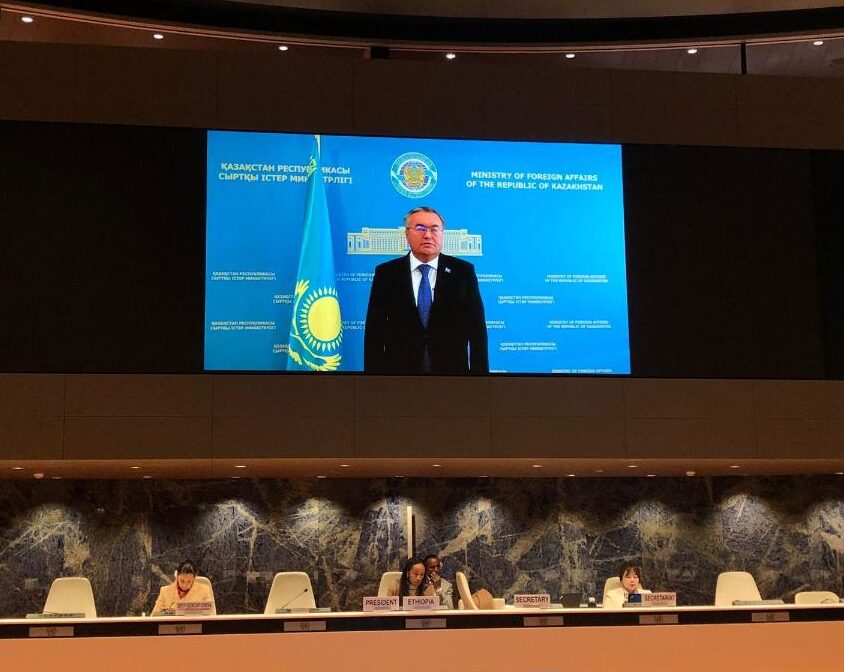The resumption of dialogue between nuclear powers is necessary as never before, said Kazakh Deputy Prime Minister and Minister of Foreign Affairs Mukhtar Tileuberdi at a Feb. 28 High-level Segment of the Conference on Disarmament (CD) in Geneva, reported the UN Office press service.
“Over the past year, the world has become even less secure. The conflict in Ukraine, enormous nuclear arsenals, aggravated nuclear rhetoric, and lack of dialogue are taking the world in a dangerous direction,” Tileuberdi said, addressing the gathering via a video message.
As a staunch supporter of nuclear disarmament, Kazakhstan emphasized the importance of discussing the New Strategic Arms Reductions Treaty after 2026 and demonstrating firm commitment by the five nuclear-weapon states to the joint statement adopted in January 2022 on the inadmissibility of nuclear war.
Tileuberdi stressed Kazakhstan’s consistent support of the Treaty on the Prohibition of Nuclear Weapons (TPNW). According to the Kazakh Foreign Ministry, the country will chair the third meeting of the state parties to the TPNW.
“The President of Kazakhstan proposed the establishment of a special multilateral body, the International Agency for Biological Safety. This agency could operate as an executive body of the Biological and Toxin Weapons Convention and pay special attention to the needs of developing countries,” said the minister.
UN Under-Secretary-General and High Representative for Disarmament Affairs Izumi Nakamitsu opened the event, attended by over 50 representatives of the conference’s member states. It is the only permanent multilateral forum for negotiations on disarmament and arms control issues.
At the High-Level Segment of the 52nd UN Human Rights Council session on Feb. 27 in Geneva, Tileuberdi, also via a video message, shared Kazakhstan’s progress after significant reforms last year, which facilitated political transformation and tangible socio-economic changes.
According to the minister, the recent constitutional reforms solidified the final transition from a super-presidential system of governance to a presidential republic with an influential parliament and an accountable government.
The country also established the Constitutional Court, broadened the mandate of the Ombudsperson for Human Rights, signed the Optional Protocol to the Convention on the Rights of the Child on a communications procedure, set up the National Fund for Children, and simplified the procedure for registering new political parties.
UN Secretary-General António Guterres, UN High Commissioner for Human Rights Volker Türk, and more than 150 high representatives of states attended the event.

